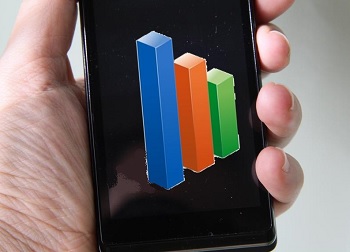The brand is already struggling to return to a smartphone space that is only increasing in competition.
The attempts being made by BlackBerry to return to a level of success in the smartphone hardware business is certainly an ongoing one, but it appears that the company has been fighting an uphill battle.
Analysts from Scotia Capital are now saying that the company will be reaching a “critical juncture” in 2016.
As much as CEO John Chen has insisted that BlackBerry will not be leaving the hardware industry and while a number of highly strategic moves have been made to help ensure that its smartphones will keep heading to store shelves – and into the hands of consumers and business users – the fact is that it is continuing to lose subscribers and money. In fact, just as the analysts made their prediction, the company also revealed that it would be laying off 125 employees in Canada, in addition to 75 workers in Florida who would also be losing their jobs.
The analysts see a number of different strategic options still left for BlackBerry as this year progresses.
 The Scotia Capital analysts said that there are three main strategic options that the Ontario, Canada-based company currently has within its reach. The first would be to step out of hardware while facing a one-time cost that they predict to be around $100 million (USD). The second would be to license its operating system or brand as a whole to another hardware manufacturer. The third would occur if the company’s hardware segment manages to reach profitability this year, in which case it should continue its operations.
The Scotia Capital analysts said that there are three main strategic options that the Ontario, Canada-based company currently has within its reach. The first would be to step out of hardware while facing a one-time cost that they predict to be around $100 million (USD). The second would be to license its operating system or brand as a whole to another hardware manufacturer. The third would occur if the company’s hardware segment manages to reach profitability this year, in which case it should continue its operations.
A great deal of the decisions that will be made by the company will depend on whether or not its latest smartphone, the Priv slider mobile phone powered by Android, ends up being successful in its sales. Investors have a very close eye on whether or not that key mobile device is managing to appeal to enough consumers to make it worthwhile.
At the same time, BlackBerry has been continuing its evolution as a provider of enterprise software. It could end up spending as much as $1 billion (USD) on the acquisition of companies over the next couple of years and still manage to keep up a net cash balance of $500 million (USD) in that business.
Predictions with regards to who would win the Spanish, Israeli and U.K. elections were way off.
During the most recent elections in the United Kingdom, Spain and Israel, pollsters called the outcomes quite firmly and yet they were incredibly wrong and the belief is that the same mistakes may be headed to the U.S. due to mobile technology and the lack of understanding of the Millennial lifestyle.
Still, American pollsters are trying their hardest to avoid those mistakes during the 2016 campaign.
According to the president of the American Association for Public Opinion Research, Mollyann Brodie, who is also responsible for overseeing polling at the Kaiser Family Foundation, “There are a lot of people working hard to make sure similar mis-steps don’t happen here.” However, she and other experts in the field – agree that the pollsters across the United States are currently up against some extremely complicated challenges with regards to their methodologies. These challenges are about as tough as they’ve been since mobile technology first hit the mainstream.
Millennials use their mobile technology to screen calls, throwing off the balance of understanding of voters.
 People in the Millennial generation don’t feel the urgency to pick up the phone when it rings, as has been the case in previous generations. When their mobile technology device rings, they use caller-ID to see who is on the other end, and they feel no obligation to pick up when it’s someone they don’t know, don’t want to talk to, or when they’re simply too busy to pick up.
People in the Millennial generation don’t feel the urgency to pick up the phone when it rings, as has been the case in previous generations. When their mobile technology device rings, they use caller-ID to see who is on the other end, and they feel no obligation to pick up when it’s someone they don’t know, don’t want to talk to, or when they’re simply too busy to pick up.
This, combined with the declining accuracy of the “likely voter” models and swindling budgets have caused sample sizes to shrink dramatically. For this reason, the polls, this year, are facing considerable criticism. There is considerable risk that the predictions in the United States are as inaccurate as they have been elsewhere around the world, and that pollsters could find themselves feeling rather red-faced when the true outcomes are revealed.
A prime example of this challenge occurred when the chief strategist for Hillary Clinton, Joel Beneson tweeted “Seriously CNN?” in response to a poll result the network released, which showed the former secretary of state falling behind Bernie Sanders in Iowa (43-51). The reason for the lack of faith in the figures is that it was discovered that the sample used by CNN was made up primarily of men, and consisted of only slightly over 300 people – which is barely representative of a general population.
 The Scotia Capital analysts said that there are three main strategic options that the Ontario, Canada-based company currently has within its reach. The first would be to step out of hardware while facing a one-time cost that they predict to be around $100 million (USD). The second would be to license its operating system or brand as a whole to another hardware manufacturer. The third would occur if the company’s hardware segment manages to reach profitability this year, in which case it should continue its operations.
The Scotia Capital analysts said that there are three main strategic options that the Ontario, Canada-based company currently has within its reach. The first would be to step out of hardware while facing a one-time cost that they predict to be around $100 million (USD). The second would be to license its operating system or brand as a whole to another hardware manufacturer. The third would occur if the company’s hardware segment manages to reach profitability this year, in which case it should continue its operations.
 People in the
People in the 